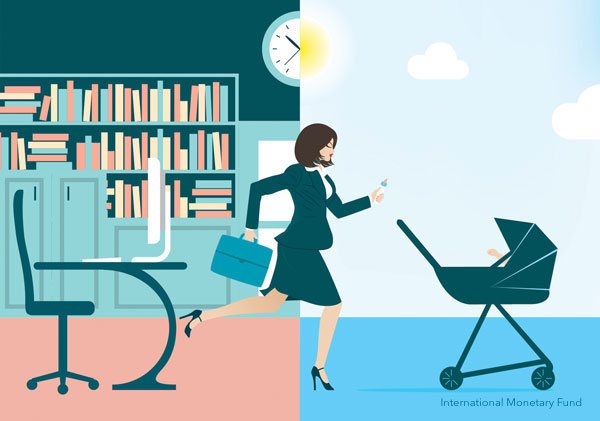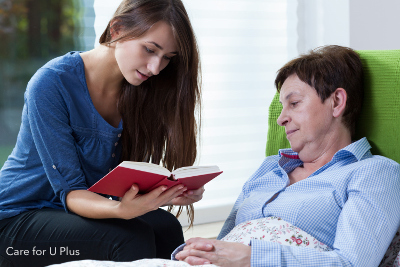MMM responds to EU Commission’s Public Consultation on Gender Pay
08.06.20
On May 27th, Make Mothers Matter responded to the EU Commission’s Public Consultation: “Transparency on pay for men and women”. The objective of the consultation was to gather views of stakeholders on (i) gender-based pay discrimination and (ii) pay transparency measures as a tool to support awareness and enforcement of the ‘equal pay for equal work or work of equal value between women and men’. A directive proposal on the topic is foreseen for the end of 2020.

We at MMM highlighted that it is necessary to tackle the gender pay gap (GPG) from a « chain reaction » perspective encompassing not only the immediate effects but also the root causes of the problem. To do so, it is crucial to promote pay transparency measures but also, to address the unequal share of unpaid care work between men and women. This work is mostly done by women, in particular mothers, and has a negative impact on their professional career and leads to the motherhood penalty
 Indeed, women with children under 7 years of age in the EU on average spend 20 hours per week more than men on unpaid work. In addition, more than 1 in 3 women reduce their paid hours to part-time due to care responsibilities, while only 1 in 10 men do the same. More than 32% of the potential female workforce (aged 20-64) in 2019, is absent from the labour market in the EU, because they are looking after children or incapacitated adults.
Indeed, women with children under 7 years of age in the EU on average spend 20 hours per week more than men on unpaid work. In addition, more than 1 in 3 women reduce their paid hours to part-time due to care responsibilities, while only 1 in 10 men do the same. More than 32% of the potential female workforce (aged 20-64) in 2019, is absent from the labour market in the EU, because they are looking after children or incapacitated adults.
The unequal division of unpaid care work between men and women and the devaluation of care work contributes to continuing gender segregation in education and in the labour market. It has a strong effect in perpetuating women’s lower labour force participation over the life course and women’s disproportionate participation in precarious employment, reinforcing the gender gap in pay and pensions. For example, the employment gap which currently lies at 11,5% in the EU is particularly high for mothers and women with caring responsibilities. The gendered division of unpaid care work also hinders the opportunity for mothers to advance in their professional career and improve their skills.
This is in effect, the motherhood penalty suffered by women with children. The gender wage inequality is not only a pay gap between men and women but also between mothers and fathers and between women without children and mothers. In addition, we highlighted the existence of a significant connection between unpaid care work and women’s poverty. This vulnerability to poverty is exacerbated when mothers are single.
MMM is convinced that the GPG can be closed if appropriate measures are implemented at EU level, and especially if the unequal share of unpaid care work between men and women is addressed. To complement our analysis, we mandated the law firm De Brauw Blackstone Westbroek N.V. to uncover legislative and non-legislative measures.
The GPG cannot be tackled if it is not visible – pay transparency is a step in that direction. More pay transparency would “reveal potential gender bias or discrimination in pay structures, and contribute to raising awareness and improving understanding of the causes of the gender pay gap.”[1] To enforce pay transparency, MMM recommended several measures to be included in the Directive proposal and, where appropriate, voluntarily implemented by European enterprises. These measures include compulsory pay audits, assessment plans and the employee’s right to obtain pay information.
However, the GPG will never be reduced if the unequal share of unpaid care work is not addressed. Make Mothers Matter is convinced that the wage gap between men and women cannot be solved without substantive action on care work, which is mostly undertaken by mothers.
 Unpaid family care work is indispensable. Someone must respond to the material, educational and emotional needs of the members of a family, not only children but also people affected by a handicap, illness, or old age. As the population of Europe is ageing, the need for care will only increase and the care gap as well. Make Mothers Matter strongly believes that gender equality will not be achieved until unpaid care work is recognised, reduced, and redistributed.
Unpaid family care work is indispensable. Someone must respond to the material, educational and emotional needs of the members of a family, not only children but also people affected by a handicap, illness, or old age. As the population of Europe is ageing, the need for care will only increase and the care gap as well. Make Mothers Matter strongly believes that gender equality will not be achieved until unpaid care work is recognised, reduced, and redistributed.
Therefore, Make Mothers Matter recommended that other measures aiming at tackling the root causes of the GPG are considered by the European Commission at EU level and, where appropriate, voluntarily implemented by European enterprises. These include: the integration of care credits in pension schemes, the recognition and validation of competences and skills acquired by doing unpaid family care work, the adoption of a lifecycle approach that integrates flexible pathways, up-skilling, and reskilling and the accessibility, affordability and quality of childcare centres.
For more information, please check our response to the consultation
[1] J. HOFMAN, M.NIGHTINGALE, M. BRUCKMAYER, and P. SANJURJO (2020), Equal Pay for Equal Work: Binding pay-transparency measures, Study for the Committee on Employment and Social Affairs, Policy Department for Economic, Scientific and Quality of Life Policies, European Parliament, Luxembourg, p.9.
Breaking the Cycle: Gender Equality as a Path to Better Mental Health
18.03.25
The Council of the European Union has taken a decisive step in recognising the vital connection between gender equality and mental health.
Europe Must Listen to Mothers: Our landmark report heads to the European Parliament
28.08.25
On 22 September 2025, the voices of mothers will take centre stage in Brussels. For the first time, Make Mothers Matter (MMM) will present its State of Motherhood in Europe
Belgian Mothers Face Alarming Rates of Burnout and Perinatal Depression, New EU Survey Finds
03.07.25
Belgian mothers are facing a mental health crisis. According to the State of Motherhood in Europe 2024 survey by Make Mothers Matter (MMM) and Kantar, Belgium reports the highest rates








